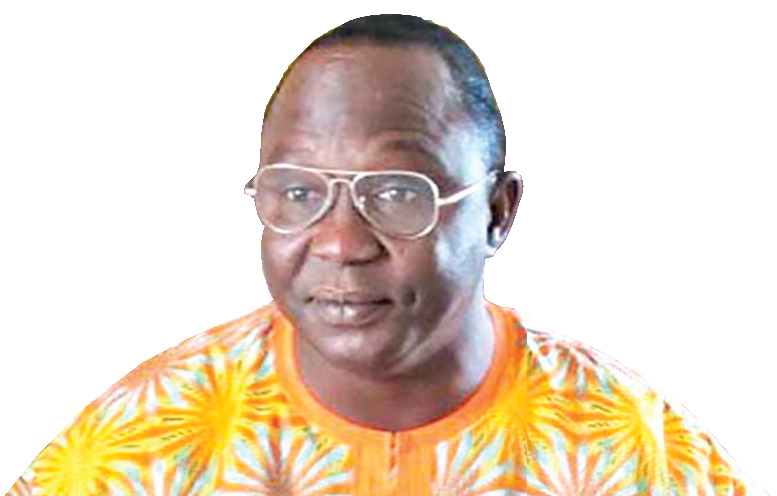- Minimum Wage: Labour Orders Nationwide Strike
The Nigeria Labour Congress has directed all its members and affiliate unions to commence a nationwide strike on Thursday (today).
The organised labour had held a meeting with the Minister of Labour and Employment, Chris Ngige, in Abuja on Wednesday, which did not produce the expected outcome.
The NLC President, Ayuba Wabba, said the industrial action would commence due to the refusal of the Federal Government to reconvene the meeting of the tripartite national minimum wage committee to enable it to conclude its work.
He said, “In compliance with this mandate, all workers and private sector at all levels across the country have been directed to comply.
“All public and private institutions, offices, banks, schools, public and private business premises, including filling station, are to remain shut till further notice,” Wabba said at a news conference in Abuja on Wednesday.
The workers are demanding a new minimum wage of about N50,000 from the current national minimum wage of N18,000.
Tripartite committee resumes October 4
However, Ngige told journalists after a meeting with labour leaders that the tripartite committee on national minimum wage would resume negotiations on October 4.
“We are resuming precisely on Thursday, October 4, and the meeting can spill over to October 5. All the processes have been put in place and labour leaders know; they are now expected to communicate such to their organs; so we don’t have any need for a strike,” he said.
Asked if the government team had concluded its consultation on the minimum wage with governors, Ngige said it would be done when the tripartite committee resumed, adding that the government was still consulting with other stakeholders.
He said, “Part of our consultation means the economic management team would have something to work on. Already, they are working on it, the National Salaries, Incomes and Wages Commission is working on it and it is expected that before the October meeting, they would have been through with work.”
Ngige said a bill would still have to go through the National Assembly after approval by the Federal Executive Council.
But Wabba said the unions had to brief their organs before calling off the strike.
He said, “Our demand is that the tripartite negotiating council should be brought back to complete its assignment. He has given us an update and we are taking back the discussion we had with him.”
But the NLC Secretary-General, Dr Peter Ozo-Eson, told one of our correspondents that the strike would proceed as planned,
He asked, “Have we said anything to the contrary?”
NUPENG, COEASU, JUSUN workers to join strike
The Petroleum and Natural Gas Senior Staff Association of Nigeria said it would join the strike as long as its labour centre – the Trade Union Congress – was involved.
The spokesman for the organisation, Mr Babatunde Oke, said, “We are going to be part of it. As long as our labour centre is involved, we are also involved. We are going to take part in the strike if TUC so directs us.”
Also, the national leadership of the Judiciary Staff Union of Nigeria directed its members to join the warning strike.
The President of JUSUN, Mr Marwan Adamu, said in a statement on Wednesday that “effective from midnight on Wednesday” all courts in the country must remain closed pending a counter instruction from the national secretariat of the union.”
On its part, the Colleges of Education Academic Staff Union said that it would embark on the warning strike in solidarity with the NLC.
The COEASU National President, Nuhu Ogirima, said, “The academic union will join the strike because it has become evident that dialogue and diplomacy would not make the government change its stance.
He said, “It is also expedient to take this action against the crass insensitivity of governments at both state and federal levels to the plight of the colleges of education.”
ASUU to consult with leadership
But the Academic Staff Union of Universities said it would consult with its leadership and trustees before joining the strike.
The ASUU National President, Prof. Biodun Ogunyemi, told one of our correspondents on the telephone on Wednesday that he could not decide without an approval from the ASUU executives and trustees.
Ogunyemi said, “We are part of the NLC. We are an affiliate of the NLC. But we are waiting for the final decision and we are consulting. I am also consulting with the ASUU leadership.”
But the Owerri Zonal Coordinator of ASUU, Prof Uzo Onyebinama, during a press conference at the Nnamdi Azikiwe University, Awka, Anambra State, on Wednesday said the union might join the strike.
‘Abia workers to comply’
In Abia State, the Chairman of the NLC, Chief Uchenna Obigwe directed federal and state government workers in the state to comply with the directive to embark on the strike.
Obigwe, while briefing journalists in Umuahia, said the NLC viewed the silence of the Federal Government to its demand for a new minimum wage as sabotage.
FG, NLC must consider national interests – SERAP
Meanwhile, a civil society organisation, the Socio-Economic Rights and Accountability Project, has warned that the nation’s economy would be negatively affected by the strike, urging the NLC and the Federal Government to consider the national interests.
The SERAP Director, Adetokunbo Mumuni, said, “In Nigeria, strikes are not an option; a strike will stop the economy and further impoverish Nigerians. What I seek is that the government should settle the minimum wage issue so that our economy can continue to operate at a full speed.
“The NLC should also consider the interests of the workers and of the nation and resolve this issue quickly.”

 Forex2 weeks ago
Forex2 weeks ago


 Naira2 weeks ago
Naira2 weeks ago
 Naira4 weeks ago
Naira4 weeks ago
 Company News4 weeks ago
Company News4 weeks ago
 Billionaire Watch1 week ago
Billionaire Watch1 week ago




 Naira2 weeks ago
Naira2 weeks ago




 Naira4 weeks ago
Naira4 weeks ago




 Naira1 week ago
Naira1 week ago






















